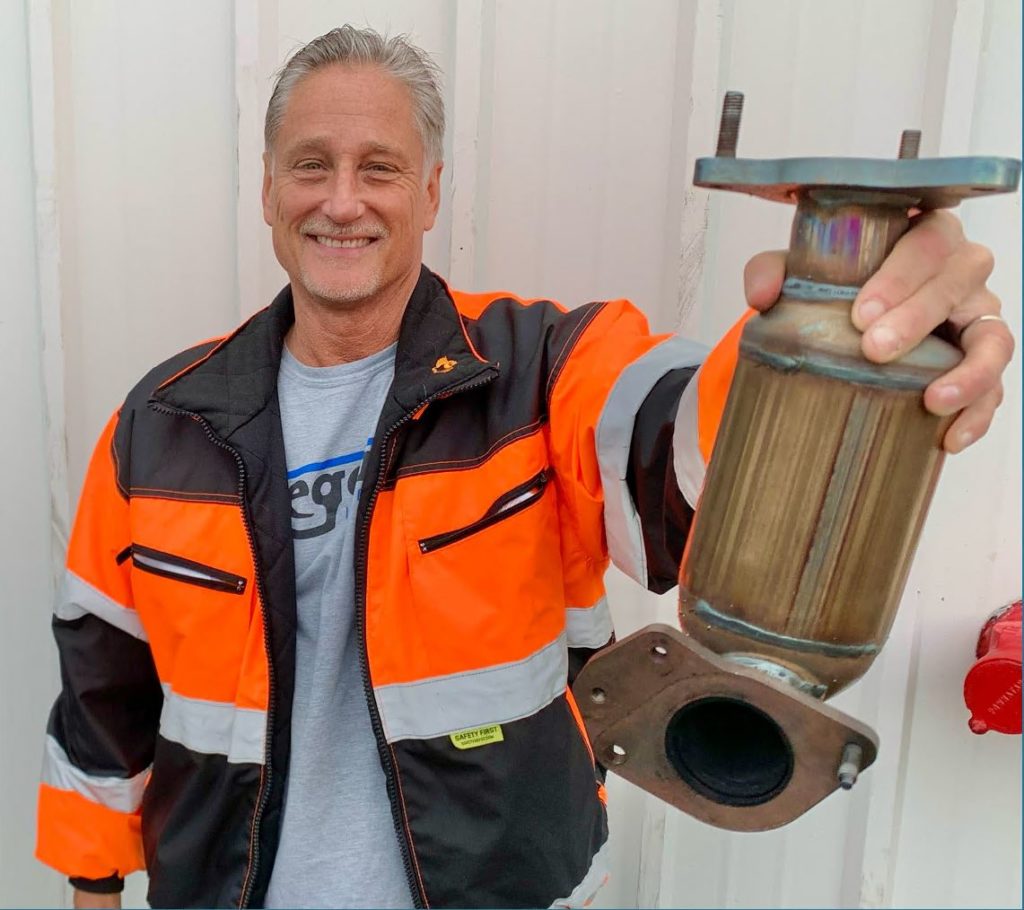Sen. Jeff Wilson, R-Longview, and catalytic converter.
OLYMPIA – A bill introduced Monday by Sen. Jeff Wilson, R-Longview, targets a growing wave of catalytic converter thefts nationally and in Washington state.
Senate Bill 5495 prohibits scrap dealers from purchasing catalytic converters except from commercial enterprises and vehicle owners. Scrap dealers who knowingly purchase or receive stolen catalytic converters would face misdemeanor charges.
Similar laws are being passed in other states as catalytic converter thefts sweep the country. Wilson said he modeled his legislation after a similar law that takes effect in Oregon next month, out of concern that it will drive thieves north of the border.
Wilson’s bill, introduced for consideration during the 2022 legislative session, also requires scrap metal dealers to confirm ownership when catalytic converters are resold, and maintain records of vehicle identification numbers. Cash payments could not be made on the spot, and would have to be delayed at least five days.
“Catalytic converter theft has become the crime of the day,” Wilson said. “We see reports on every police blotter in every corner of the state. And the crime has exploded in just the last year.”
Driving the crime wave are rising prices for precious metals used in catalytic converters, which filter tailpipe gases and convert them to less-toxic pollutants. A thief armed with a hacksaw or an electric reciprocating saw can crawl beneath a car or truck and remove a catalytic converter in about a minute. The precious metals can be recycled, or in some cases the catalytic converter can be reused. Converters from some vehicles are in especially high demand.
Wilson cited a report in The Daily News of Longview of 58 catalytic converter thefts by September of this year, compared to nine cases in 2020 and just three cases in 2019. About two-thirds of this year’s thefts had occurred since June.
In one Longview case, thieves targeted a used-car lot and removed multiple converters. In another, a man who attempted to stop a catalytic converter theft-in-progress in downtown Longview was slashed with a knife. Catalytic converters have been stolen from vans operated by the Lower Columbia Community Action Program to deliver meals-on-wheels, Wilson said. And in a wrecking yard near Wilson’s home, where catalytic converters are removed from junk cars, a burglar was caught tossing catalytic converters over the junkyard fence.
Longview isn’t alone. Similar reports have surfaced in every community of the state, as thieves target parking lots and disabled cars parked along roadways.
“We live in an age in which some say we should look the other way at petty crime, because thieves are needy.” Wilson said. “But let me tell you, it’s not going to seem petty when you start your car and you hear a blast from the tailpipe. Replacing a catalytic converter is expensive, and even when it is covered by insurance, sometimes it can take weeks to get a replacement. This isn’t a nuisance crime. It’s an epidemic.”











